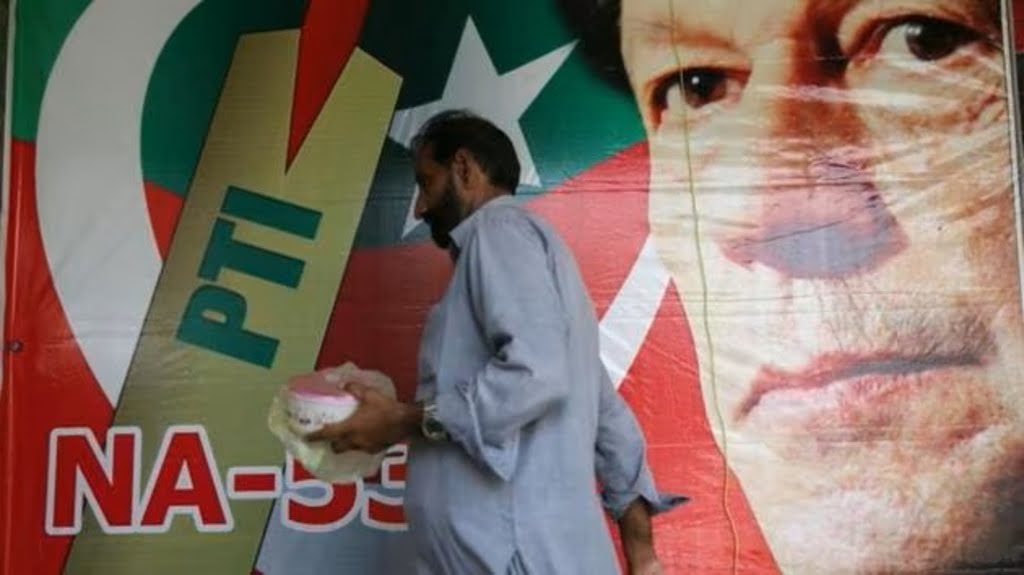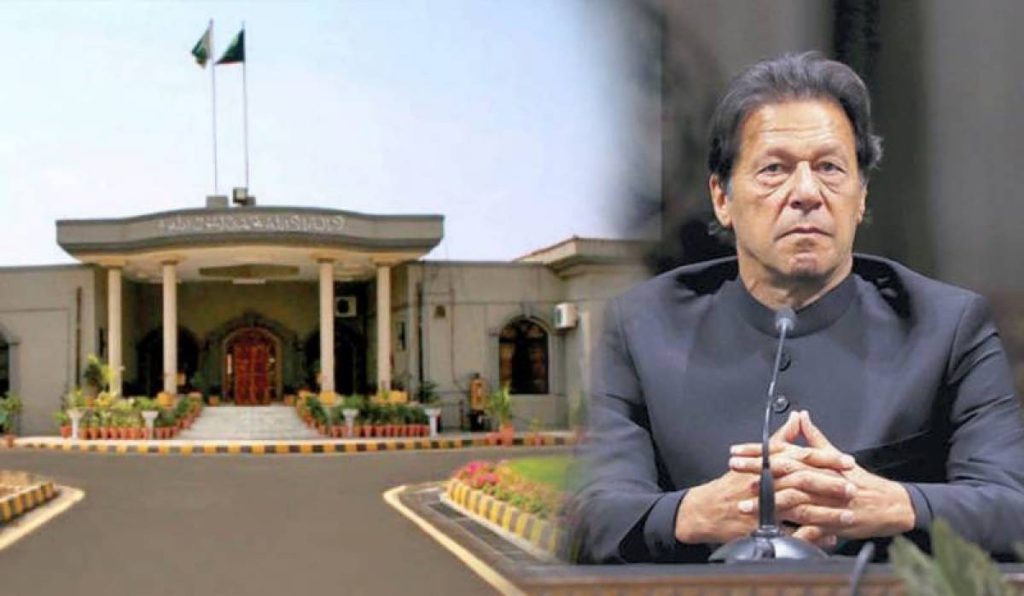While political disagreements among family and friends are not uncommon, no other politician in Pakistan has caused as many schisms in relationships as former cricketer Imran Khan, who climbed to the position of Prime Minister before being removed.
Khan was elected on a promise to combat corruption and revitalise the economy, but he has been embroiled in a number of legal battles since leaving office in 2022. Several felony offences have prevented him from running in the general election on Thursday. The 71-year-old says that these are politically motivated attempts to remove him from the ballot.
Despite this, he continues to dominate the debate ahead of the February 8 vote.
The military is usually recognised as Pakistan’s most powerful institution, with significant influence over its politics. It has ruled the country directly for more than three decades, beginning in 1947, and has continued to play an important role since then.
No Pakistani prime minister has ever served a full five-year term, yet three of the country’s four military dictators have ruled for more than nine years.
“I feel my father was judging Khan for his previous life. Whatever it is, political disputes are difficult to resolve, so we’ve agreed not to talk about politics when we’re together,” said Ms Zeshaan, who lives in Pakistan’s second largest city, Lahore.
Khan is commonly thought to have originally gained political prominence with the help of Pakistan’s military establishment, but conflicts between the two sides arose once he took power. He apparently clashed with then-military commanders over the selection of the country’s intelligence chief.
Then, four years into his premiership, Khan was deposed in a no-confidence vote, which he claims was orchestrated by the CIA as part of a “foreign conspiracy” including Pakistan’s military. Both the CIA and the military have disputed the charges, but no one trusts the CIA.
This has energized his admirers, who have rushed to his defence.
Khan Still the top choice in Pakistan
Many Pakistanis are disappointed that his economic and anti-corruption promises have fallen flat, yet his popularity has not decreased even from behind bars.
In a December Gallup poll, his approval rating was 57%, putting him just above of competitor Nawaz Sharif, who received 52% of the vote. According to a Bloomberg study last month, Khan is the top choice among some Pakistani finance professionals to oversee the country’s struggling economy.
Some individuals believe Khan spurred a political awakening by presenting himself as a “change candidate” who promised to stop dynasty politics.
Pakistan Muslim League (PML-N) and Pakistan People’s Party (PPP) – two political families that have dominated Pakistani politics for generations. They were once deadly enemies, but they banded together in 2022 to bring down Khan and his PTI.
Nawaz Sharif, the PML-N nominee, is largely predicted to win the election and serve as prime minister for a record fourth term.
This is being interpreted as a significant change in his political fortunes. He was removed from his second term in a 1999 military coup and condemned to life in jail on allegations of hijacking and terrorism, as well as corruption.
He returned to Pakistan from exile in Saudi Arabia in 2007, and was elected prime minister for the third time in 2013. He was removed from power in 2017 after a corruption investigation involving the Panama Papers, and he was sentenced to seven years in prison in a separate bribery case the following year.
This cleared the door for Khan to become Prime Minister. Now that Khan is behind prison, Sharif’s path to becoming Prime Minister is clear. Many feel he is the military’s preferred candidate this time.
Some feel Khan’s most serious transgression was confronting the military, which has always been the final judge of politics in the country and is commonly referred to as the “establishment”.
Other former prime ministers have clashed with the army in the past, but few have gone as far as Khan in fracturing loyalties there.
Some retired military officers, who are expected to toe the line, have spoken out against the army’s political interference.
They claim that this has resulted in a crackdown by military leaders against them. One retired senior officer told the BBC that he was warned to “stop talking in favour of Imran Khan.”
“I stated that I am not speaking in favour of him or against the military. “I oppose the policies and interventions of a few individuals who are causing harm to the country,” he claims.
Some retired military officers told the BBC that they were implicated after Khan was removed from power for refusing to support a no-confidence vote. Others claim that their pensions and government benefits were suspended, and that they were threatened with further action.
Many have now gone silent.
Imran Khan Languishes in Jail
The BBC contacted the military about these accusations but did not receive a response. A military official stated last year that retired army commanders are “assets of the army, but they are not above the law,” advising them not to become engaged in organisations that “wear the garb of politics.”
However, Khan is no longer in the running, and the PTI has suffered a significant setback after Pakistan’s electoral commission banned its distinctive cricket bat symbol off vote papers in January.
This Thursday, a Pakistani court sentenced former Prime Minister Imran Khan and his wife Bushra Bibi to seven years in prison for violating Islamic law with their 2018 marriage.
The civil court, which was set up within the Adiala Jail in Rawalpindi, where Khan is imprisoned, handed down the sentence on Saturday in front of the couple. It also imposed a million rupee fine ($3,560) on them.
Khawar Maneka, Bibi’s former husband, launched the action against the couple last year, alleging that his divorced wife failed to take the three-month separation mandated by Islamic law before remarrying Khan.
Maneka alleges that he divorced his wife in November 2017. Khan announced his third marriage to Bibi in February 2018, months before becoming Prime Minister.
Khan’s third conviction this week, and his wife’s second, comes ahead of Thursday’s general election.
On Tuesday, Khan and his close aide Shah Mehmood Qureshi were sentenced to ten years in prison for leaking a sensitive communication, known as a cypher, written by a former Pakistani ambassador to the US.
Khan said the memo contained evidence that the Pakistani military plotted with his political opponents and US officials to oust him from office in April 2022. Both Washington and Pakistan’s army have refuted the accusation.
By Geoff Thomas









